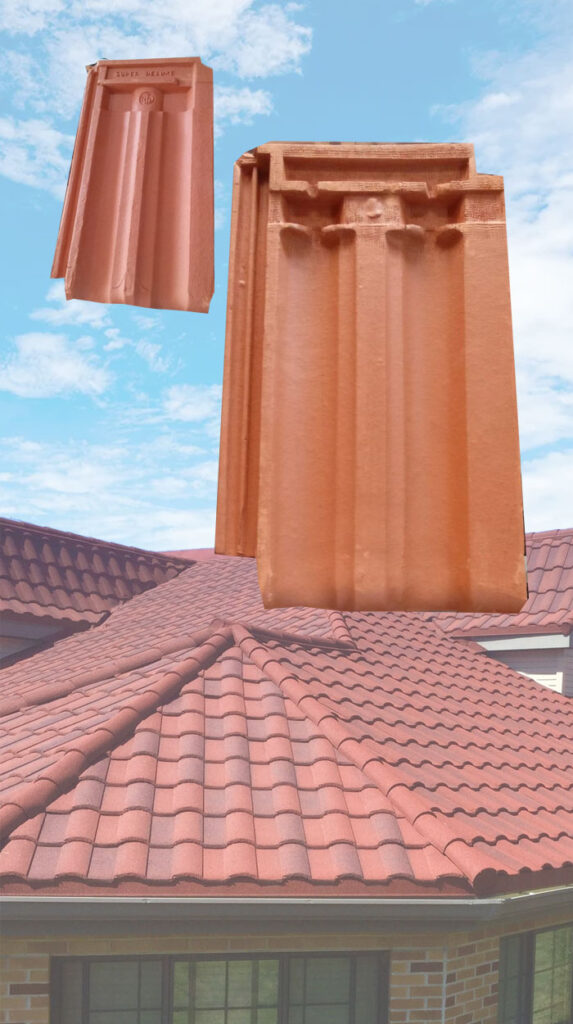
Clay roofing tiles are ceramic products formed from solid units of clay or shale. These tiles are typically shaped into rectangular planar forms while in a plastic state and fired in a kiln. The manufacturing process of clay roof tiles is similar to that of bricks, but the tiles are thinner and lighter.To ensure their quality, the clay used for making roof tiles has high plasticity.
Strength and Durability:
Roofing tiles, known for their strength and durability, are often made from materials like metal, concrete, clay, or slate. The quality of materials, protective coatings, and finishes contribute to resistance against environmental elements such as rain, snow, hail, and UV radiation. Proper installation and adherence to weight-bearing guidelines ensure structural integrity.
Thermal Insulation:
Roofing tiles, such as clay and concrete tiles, can provide excellent thermal insulation due to their composition and installation method. Clay tiles are fired at high temperatures, making them nearly impervious to the elements, while concrete tiles are manufactured for superior density and durability. These properties allow roof tiles to absorb and store heat gained from the sun throughout the day, reducing the amount of heat transferred from the roof deck into the attic space. This results in less work for the air conditioning system, especially in the summer months.
Fire Resistance:
Roofing tiles offer excellent fire resistance due to their non-combustible nature. They are commonly used in fire walls and fire barriers because they provide durable fire resistance and are economical to construct. Roof tiles typically have a Class A fire resistance rating, indicating their excellent fire resistance properties.
Low Maintenance:
Roofing tiles including clay, concrete, metal, and composite, are known for their low maintenance requirements. They are designed to withstand harsh weather conditions and require minimal maintenance over their long lifespan.
Contact Us
We look forward to joining hands with you. We would love give you more information upon your request. So, feel free to contact us any time.




